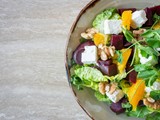4 Tips to Eat Like a Pro: Nutrition Secrets from Elite Athletes

It’s not just pro athletes who are putting more time into their health. With so much education floating around in terms of exercise, nutrition and supplements, there’s no excuse for us all not to be following similar diets to the likes of LeBron James, Cristiano Ronaldo and Simone Biles. Today, we’re rounding up 4 of the top nutrition tips from the world of elite sport that you can incorporate into your own diet in order to eat like a pro.
Prioritise The Recovery Window
Most of us generally know what we should and shouldn’t be eating, but what about when we should and shouldn’t be eating? If you are one of those people who finish a workout and then proceed to dawdle in the locker room while showering and getting changed, you could be wasting valuable time in terms of your nutrition.
30-60 minutes after a workout is known as the recovery window, and this is a vital period for muscle growth and recovery. This is the optimal time to maximise muscle gains, and is particularly beneficial to those who are trying to increase muscle mass.
Athletes that tend to have higher muscle mass percentages, such as NFL players, rugby players and boxers, will often target this window with a high-protein meal or snack. Consider protein shakes for a quick hit of protein after a workout, while eggs and meat can be combined with carbohydrates for your first meal after exercise to fully replenish energy sources.
Consider Gut Health
One area of health that’s on the rise is gut health, with both athletes and non-athletes considering how nutrition choices will impact their digestive system. In the world of athletics and sport, endurance athletes are considering gut health more than most.
Tactics include focusing on the right amount of sugar prior to an event; too much may leave you with tummy troubles, while too little will leave your energy sources zapped. We’re also seeing an increase in the popularity of fermented foods (such as kefir), which are incorporated into daily meal plans for gut health benefits.
Don’t Sleep On Sleep
The benefits of sleep have long been linked to physical and mental health, but what about nutrition? Many of the world’s top athletes have spoken about the importance of sleep and there are many stars who go above and beyond the recommended eight hours. LeBron James gets around 12 hours of sleep a day, while Roger Federer was known to get the same amount of rest during his successful tennis career.
While their reasons for doing so may vary, there is a known link between sleep and diet. On one hand, you’ve got the scientific explanation, which includes how metabolisms are disrupted by a lack of sleep. On the other hand, consider the simple fact that a tired body is likely to make poorer dietary choices and crave sugary foods.
Go Gluten Free
A gluten-free diet is often linked to celiac disease, but it appears that a diet free from gluten could be shifting from a necessity to a health choice. It’s a trend that could be being driven by tennis champion Novak Djokovic, who has attributed much of his success to his gluten-free diet.
While Djokovic’s change was brought about by a sensitivity to gluten and dairy, the history books will also point to much-improved on-court performance. If you’re looking to take a leaf out of Djokovic’s recipe book, try to incorporate the following foods:
- Vegetables
- Beans
- White meat
- Fish
- Fruit
- Nuts
- Seeds
- Chickpeas
Final Thoughts
It’s important to remember that everyone’s body is different, and what works for one person may not work for another. When trying to emulate professional athletes, appreciate that they may lead different lives from you, and they may require considerably more or less calories. That said, the trends mentioned above can work for most people. Try to make slow, progressive changes to allow your body to adapt slowly.
